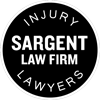The term “aftermarket” is used to refer to a vehicle that has work performed on it. Unfortunately, there are many situations in which aftermarket vehicle modifications are incompletely performed, which can occur when the vehicles fail to meet established safety standards, the quality testing is inadequate, or other poor service techniques are utilized. Many individuals never consider whether an aftermarket modification of a vehicle is responsible for a motor vehicle collision, but in some circumstances in Riverside and the rest of California, this type of vehicle modification is the exact cause of an California auto accident.
If you have been involved in a motor vehicle accident, it is important to have your case reviewed by an expert who can determine whether any faulty aftermarket modifications were performed to any of the vehicles that were involved in the accident.
Original Equipment and Aftermarket Vehicles
There are two types of vehicles: original equipment and aftermarket. Many motor vehicles are “original equipment,” which means that the vehicles were manufactured by an automobile maker and left unaltered.
There are, however, also aftermarket vehicles on the road. Certain types of vehicles are more likely than others to have gone through aftermarket modifications. Automobiles that are likely to have gone through modification include ambulances, conversion vans, handicapped accessible vehicles, limousines, off-road vehicles, older cars, and recreational vehicles.
What Are the Most Common Types of Aftermarket Vehicle Modifications?
There are some types of vehicle modifications that occur more frequently than others. These modifications include the following:
High-Performance Tires. Motorists sometimes add high-performance tires to increase the grip of tires while driving. High-performance tires, however, increase the chances of a vehicle rollover occurring due to contact between the tire rims and pavement.
Spoilers. Spoilers are devices attached to an automobile that are designed to “spoil” or decrease unfavorable air movement or drag across the vehicle while it is moving. Spoilers significantly increase the chances of a vehicle rollover occurring.
Suspension. Suspension refers to the system of tires, shock absorbers, and various other pieces of equipment that connect a motor vehicle to its wheel and permits motion between the two. Individuals often increase a vehicle’s suspension in order to increase a vehicle’s handling. Altering a vehicle’s suspension, however, can have a substantial impact on the chances of whether a vehicle rollover will occur.
Tinting and Headlights. Individuals experiment with vehicle tinting and lighting in several ways, including extra powerful headlights, fog lights, tinted headlights, and window tinting. These changes can create hazardous conditions in adverse weather situations, including night driving and driving during storms.
The modification of aftermarket vehicles can lead to several substantial problems including blind spots, changes in tire or air pressure requirements, faulty electrical wiring, inadequate suspension, and improper safeguards for gas lines.
What Laws Exist in California Concerning Aftermarket Vehicle Modifications?
The state of California utilizes some of the most restrictive vehicle modification laws. These laws address various aspects about motor vehicle requirements in the state of California, including the following restrictions:
Brakes. Vehicles driven in the state of California must have brakes on all four wheels. These brakes must be capable of stopping a motor vehicle traveling at a speed of 20 miles per hour within a distance of 30 feet.
Emissions. California requires biannual emission testing.
Engines. Any changes made to a motor vehicle’s engine must be reported to the California Department of Motor Vehicles within 10 days. The new engine must be the same year or newer than the vehicle’s existing engine.
Fender and Mud Flaps. Both fenders and mud flaps are required in the state of California.
Lights. Vehicles driven in California must have no more than four front lights.
Mufflers. Vehicles that are driven in the state of California must have mufflers. These mufflers be in constant operation while the vehicle is driven and must be properly maintained in order to prevent any excessive or unusual noise. Mufflers are also not permitted to be equipped with cutouts. Cutouts are product used to make a muffler quiet than normal.
Size Restrictions. Single motor vehicles in California must be no longer than 102 inches wide, 14 feet tall, and 40 feet long.
Tires. Tires on motor vehicles driven in California must be approved by California’s Department of Transportation. Tires must meet a minimum tread depth of 2/16 inch for front tires and ⅙ inch for rear tires. Motorists are also prohibited from using re-grooved tires on motor vehicles driven in California.
There are also federal laws governing what equipment may be used in aftermarket vehicles. These laws are controlled by two federal agencies: the National Highway Traffic Safety Administration and the United States Environmental Protection Agency. The National Highway Traffic Safety Administration oversees vehicle safety issues by regulating Federal Motor Vehicle Safety Standards, which establish safety standards for a few elements of motor vehicles including brake horses, lighting, and tires. These standards are divided into three categories: crash avoidance, crashworthiness, and post-crash. The Environmental Protection Agency regulations emissions. The state of California, however, has established its own emissions laws which are stricter than federal standards.
How Are Aftermarket Vehicle Modifications Decided?
If you are involved in an automobile accident involving an aftermarket vehicle, the case can quickly grow complex because there are a number of potentially liable parties including car dealerships, fleet owners, insurance companies, lessors, mechanics, and previous owners of the motor vehicle. Generally, any party that ever owned the motor vehicle can potentially be liable for damages if the vehicle underwent servicing during the previous ownership of the vehicle. If this servicing involves modifications that did not fulfill California laws regarding aftermarket vehicles, then this can significantly increase the chances that a motor vehicle accidents occurs.
If you are involved in an automobile collision involving an aftermarket vehicle, contact our talented and knowledgeable legal counsel at The Sargent Firm Injury Lawyers so we can begin assisting you with your case today.

